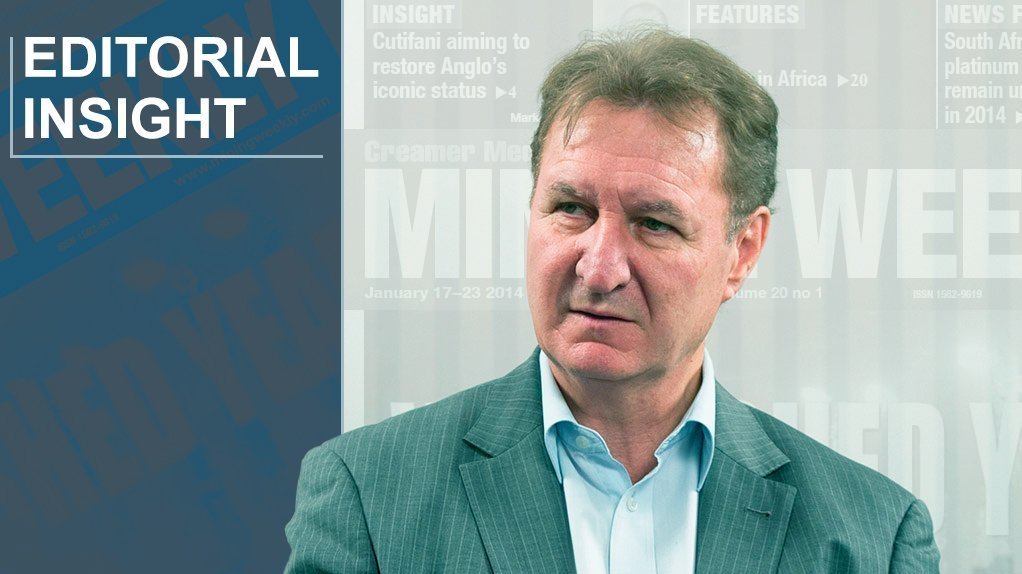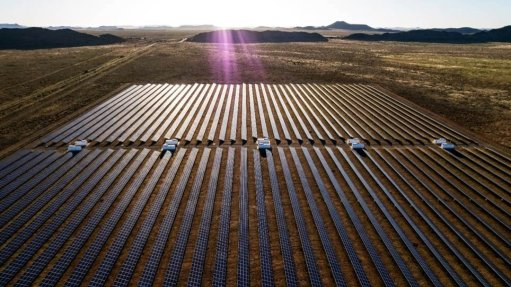Coal caps, carbon curbs, fossil fuel funding limits are correct moves in a world beset by growing climate risk
Earlier this year, Glencore became the first coal-supplying company to cap its coal production. It did so following engagement with the investor signatories to the Climate Action 100+ initiative.
As the largest supplier of seaborne coal, it undertook not to produce more than 150-million tonnes of coal a year.
That was a praiseworthy commitment for a company that mines and trades coal with such alacrity across the globe.
Then, last month, there was a lot more coal-curbing news on the funding front.
Standard Bank became the first bank in South Africa to adopt a policy of transparency on coal loans. In the same month, shareholders of HSBC requested their global bank to stop funding coal-fired power station projects and to get into line with the many other financial institutions that were taking carbon risk seriously.
While carbon credits, carbon taxes and decarbonisation had been discussed well ahead of the coal caps and funding curbs, it is these that are really drawing a line in the sand that says ‘so far and no further’ when it comes to coal mining growth and coal-fired power station proliferation.
Coal mining companies wanting to expand will, by and large, be forced to use their own money to do so and also face the growing prospect of citizens vociferously calling for a halt to coal growth and demanding carbon-free alternatives.
Coal provides about a quarter of the world's primary energy and two-fifths of its electricity. Iron- and steelmaking and many other industrial processes also require coal burning.
South Africa is a country so deeply involved in coal mining and coal burning that extricating itself quickly from using the combustible black sedimentary rock is impossible without major economic disruption.
But, fortunately, South Africa is also in a very strong position to use the sun and the wind to decarbonise its energy mix effectively without undermining the security of electricity supply, jobs and the economy.
In fact, it is now clear that a decarbonised platform will be cheaper to build than any other available alternative.
Power from South Africa’s reliable sun and prime wind will be more competitive than most, if not all, other countries.
The beauty of this new alternative is that it also meets South Africa’s other great requirement, namely employment creation.
Calculations show that it will create more jobs than any of the routes to economic electrification capacity.
What is more, it will help to make mining more competitive. Many mining companies are impatient to start doing something in renewable energy.
One such mining company is Anglo American Platinum, which is considering collaborating with an independent power producer or building, owning and operating its own solar power plant in the 75 MW to 100 MW range. The combined minerals and energy department should make it its business to remove all the obstacles in the way of doing so.
Article Enquiry
Email Article
Save Article
Feedback
To advertise email advertising@creamermedia.co.za or click here
Press Office
Announcements
What's On
Subscribe to improve your user experience...
Option 1 (equivalent of R125 a month):
Receive a weekly copy of Creamer Media's Engineering News & Mining Weekly magazine
(print copy for those in South Africa and e-magazine for those outside of South Africa)
Receive daily email newsletters
Access to full search results
Access archive of magazine back copies
Access to Projects in Progress
Access to ONE Research Report of your choice in PDF format
Option 2 (equivalent of R375 a month):
All benefits from Option 1
PLUS
Access to Creamer Media's Research Channel Africa for ALL Research Reports, in PDF format, on various industrial and mining sectors
including Electricity; Water; Energy Transition; Hydrogen; Roads, Rail and Ports; Coal; Gold; Platinum; Battery Metals; etc.
Already a subscriber?
Forgotten your password?
Receive weekly copy of Creamer Media's Engineering News & Mining Weekly magazine (print copy for those in South Africa and e-magazine for those outside of South Africa)
➕
Recieve daily email newsletters
➕
Access to full search results
➕
Access archive of magazine back copies
➕
Access to Projects in Progress
➕
Access to ONE Research Report of your choice in PDF format
RESEARCH CHANNEL AFRICA
R4500 (equivalent of R375 a month)
SUBSCRIBEAll benefits from Option 1
➕
Access to Creamer Media's Research Channel Africa for ALL Research Reports on various industrial and mining sectors, in PDF format, including on:
Electricity
➕
Water
➕
Energy Transition
➕
Hydrogen
➕
Roads, Rail and Ports
➕
Coal
➕
Gold
➕
Platinum
➕
Battery Metals
➕
etc.
Receive all benefits from Option 1 or Option 2 delivered to numerous people at your company
➕
Multiple User names and Passwords for simultaneous log-ins
➕
Intranet integration access to all in your organisation





















